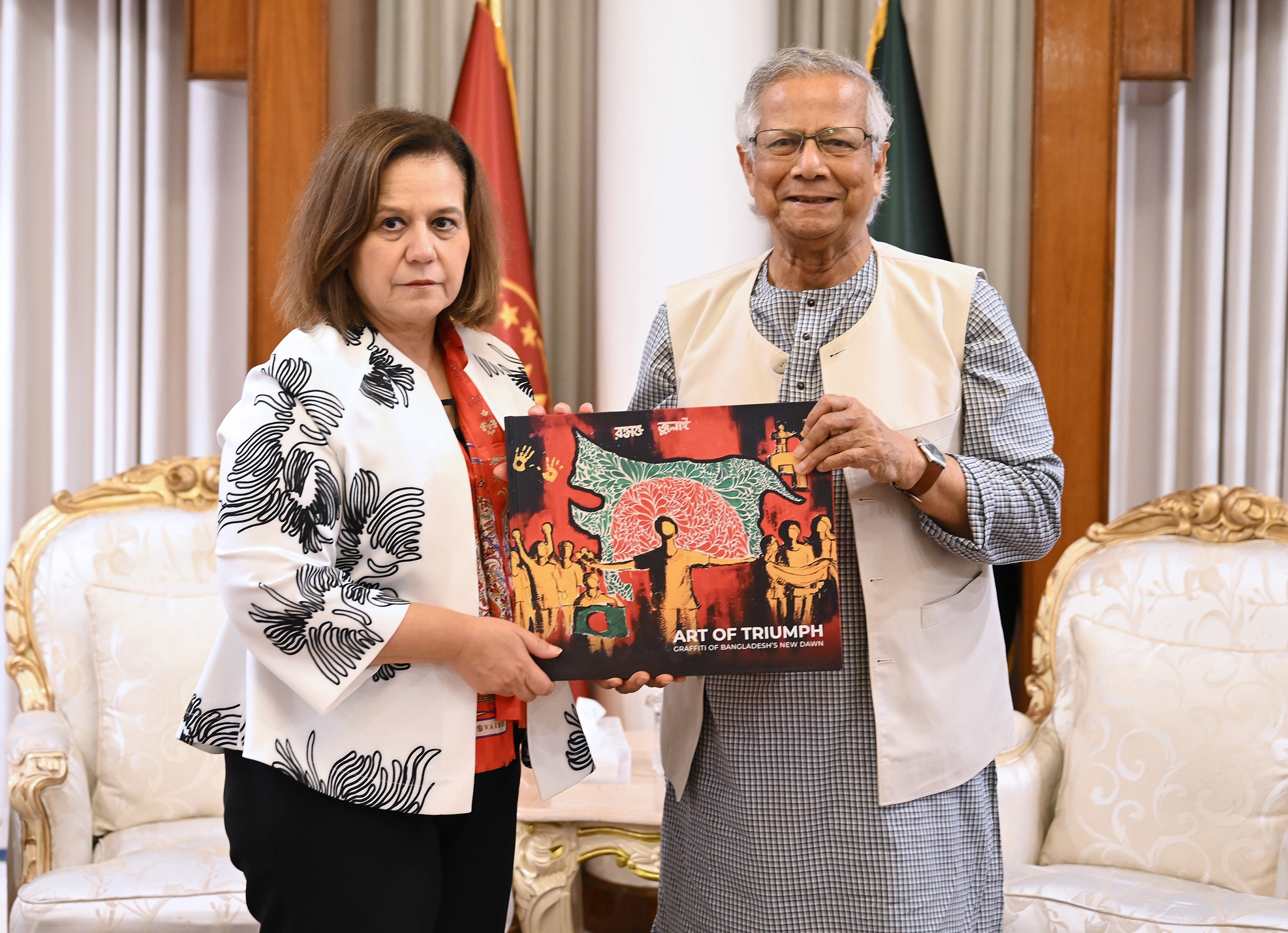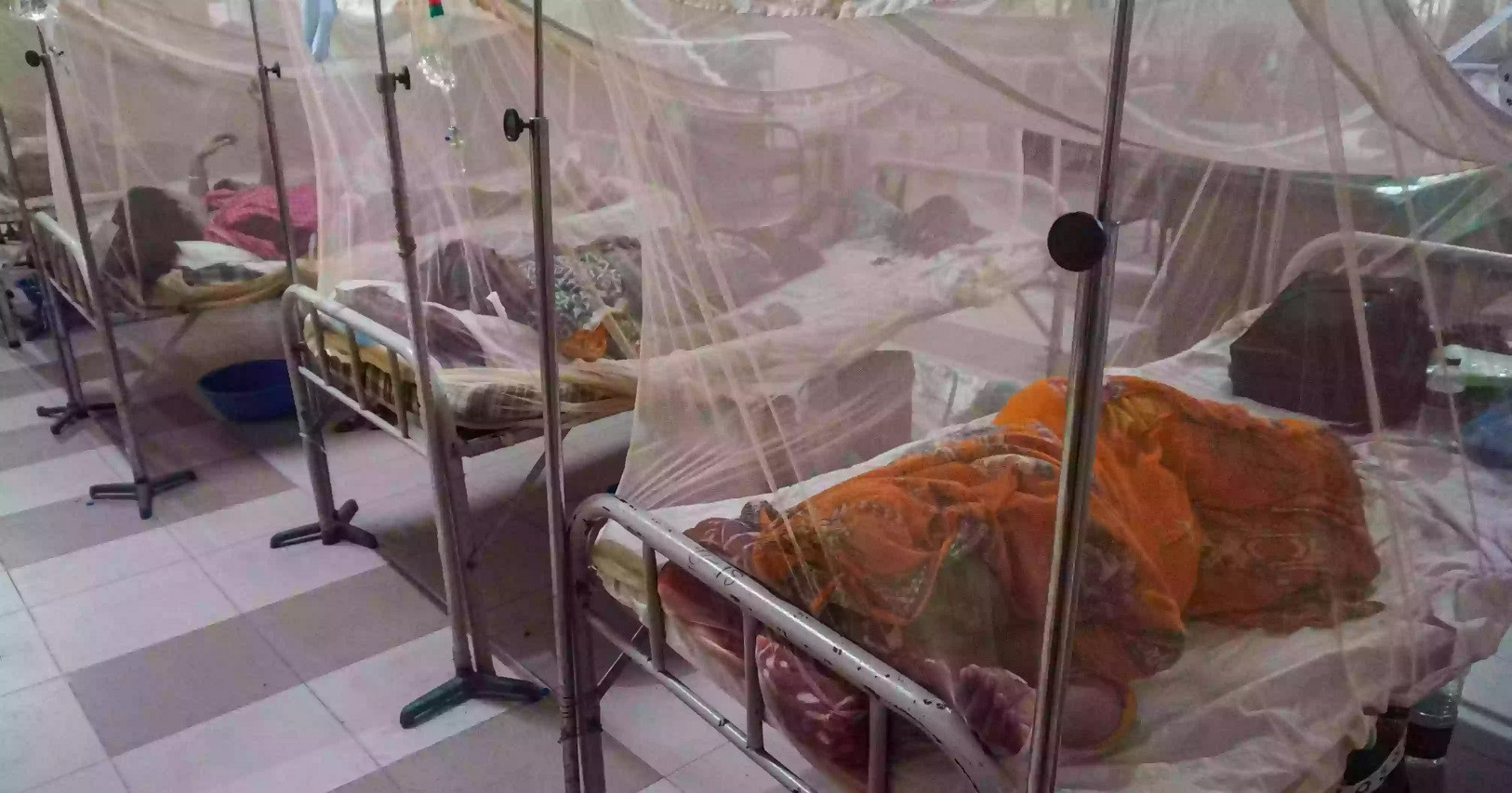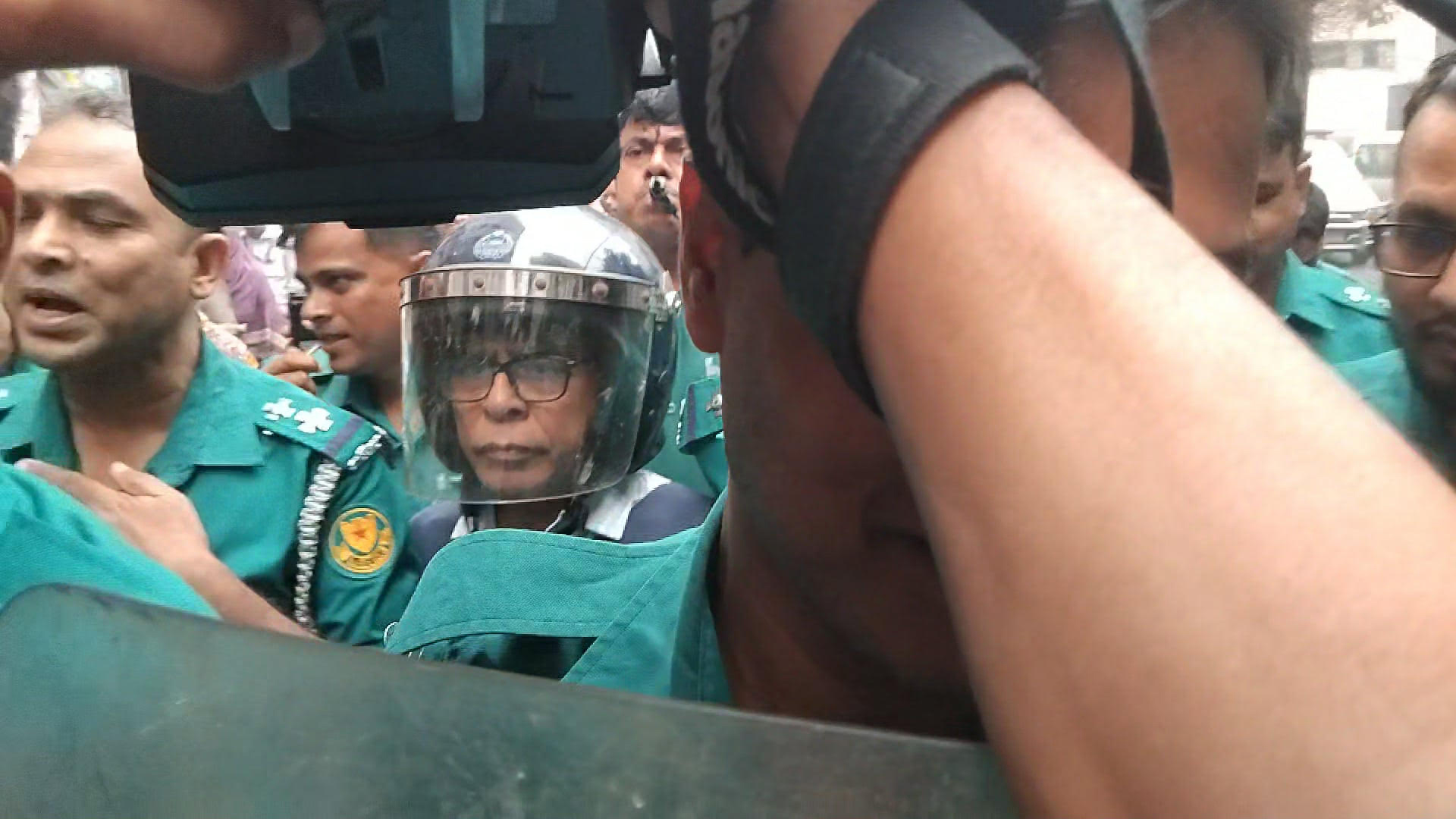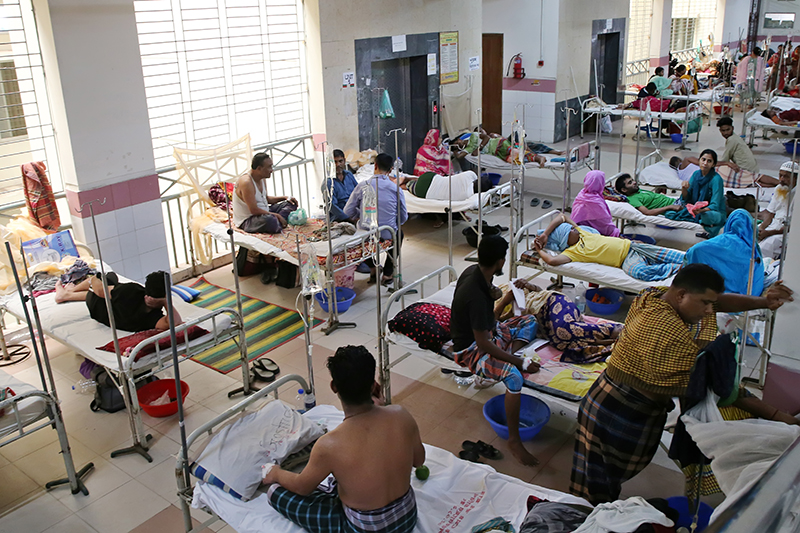
Dengue in Bangladesh shifts from seasonal outbreak to year-round threat: Experts

Bangla Press Desk: Bangladesh is unlikely to see a drop in dengue cases during the upcoming winter months (November to January), as the disease, once seasonal, is turning into a year-round health concern due to lack of preparation and proper monitoring, experts warned.
Though the dengue cases usually decline during cooler months experts warn that the surge may continue due to climate anomalies, urban conditions and lapses in mosquito control efforts this year.
According to the Directorate General of Health Services (DGHS), a total of 212 dengue deaths and 49,907 cases have been recorded in the country as of October 5, 2025 from January.
Authorities at Dhaka Medical College Hospital, Shaheed Suhrawardy Medical College Hospital and other tertiary centres reported a sharp rise in patient admissions as well.
Over the past five years, the deadliest months for dengue in Bangladesh have shifted but consistently peaked between August and November. November 2024 saw year’s highest 173 deaths, September 2023 recorded 87, October 2022 had 86 while August 2021 reported 34 deaths.
Kabirul Bashar, a professor of the Department of Zoology at Jahangirnagar University, said, “In recent years, the disease has crossed its seasonal boundary and is now present throughout the year. During the monsoon and post-monsoon periods its spread becomes alarmingly intense.”
The trend clearly indicates that if effective measures are not taken immediately, the situation in October could become catastrophic, Bashar said.
A higher density Dengue vector means the rate of disease transmission will rise rapidly and the number of patients could double or even more within a few weeks, he said.
“The spread is not limited to the capital. Major cities like Chattogram, Barishal, Khulna, Rajshahi, Sylhet and Mymensingh are witnessing a rapid increase in dengue cases. Alarmingly, rural areas are no longer safe either. Once primarily an urban disease, dengue has now infiltrated districts and upazilas,’’ he added.
About two-thirds of the infected population still resides in urban areas but infections are steadily increasing in rural regions. This expanding pattern will make future dengue control efforts more difficult, said Kabirul Bashar.
The most concerning aspect is that the highest infection and mortality rates are being observed among the youth and working-age population, particularly those between 16 to 30 years of age and this means that students and the nation’s workforce are at the greatest risk, he said.
Despite entering the final quarter of the year, hospitals across the country particularly in the capital—continue to report high occupancy of dengue patients. Many facilities are struggling with limited beds, shortages of platelets, and lack of trained medical personnel.
“We are observing a shift in dengue’s seasonal pattern,” said Prof Dr Md Golam Sarwar, the country's only government-appointed medical entomologist currently based at NIPSOM.
“If mosquito control operations are halted prematurely after October, we risk seeing an early resurgence in February or March. Sustained surveillance and control must continue year-round,” he warned.
Dr Sohel, a physician of Dhaka Medical College Hospital, “As soon as patients develop warning signs like abdominal pain, bleeding, or persistent vomiting, they rush to Dhaka. By the time they reach us, their condition is often quite serious.”
He warned that the number of positive cases is rising daily. “If the hot weather persists, the outbreak may take a fatal turn.”
Shortage of Medical Entomologists
Scientific mosquito control heavily relies on the work of medical entomologists who are trained to conduct proper mosquito larval surveys, determine mosquito density and breeding locations, identify serotypes of the virus, and recommend appropriate chemicals and methods for vector control
Bangladesh has only one government-employed medical entomologist who is currently posted at the National Institute of Preventive and Social Medicine (NIPSOM) at the Head of the Entomology Department.
On the other hand, 11 out of 12 city corporations have no medical entomologist while only 26 district civil surgeon offices have approved posts for entomologists, of which at least 12 remain vacant as of September 27.
Incomplete Mosquito Surveys
Pre-monsoon, monsoon, and post-monsoon surveys are vital to assess mosquito density and plan effective control strategies.
The 2025 pre-monsoon survey was released mid-June, by which time the monsoon had already started—limiting reaction time.
In 2024, the monsoon survey wasn’t conducted at all due to financial and manpower constraints.
Even when surveys are completed their recommendations are rarely implemented due to mismanagement, corruption, and lack of resources.
Bangladesh Society of Medicine is raising awareness about the dengue across the hospitals to control it from the very beginning. The organisation is advising the patients not to take any antibiotics and aspirin type medicine without the consultation of the registered doctor.
They also advise the patients to take more saline and liquid food and paracetamol for the relief from the pain and visit the doctor immediately just after doubting the presence of the diseases.
BP/SP
YOU MAY ALSO LIKE






